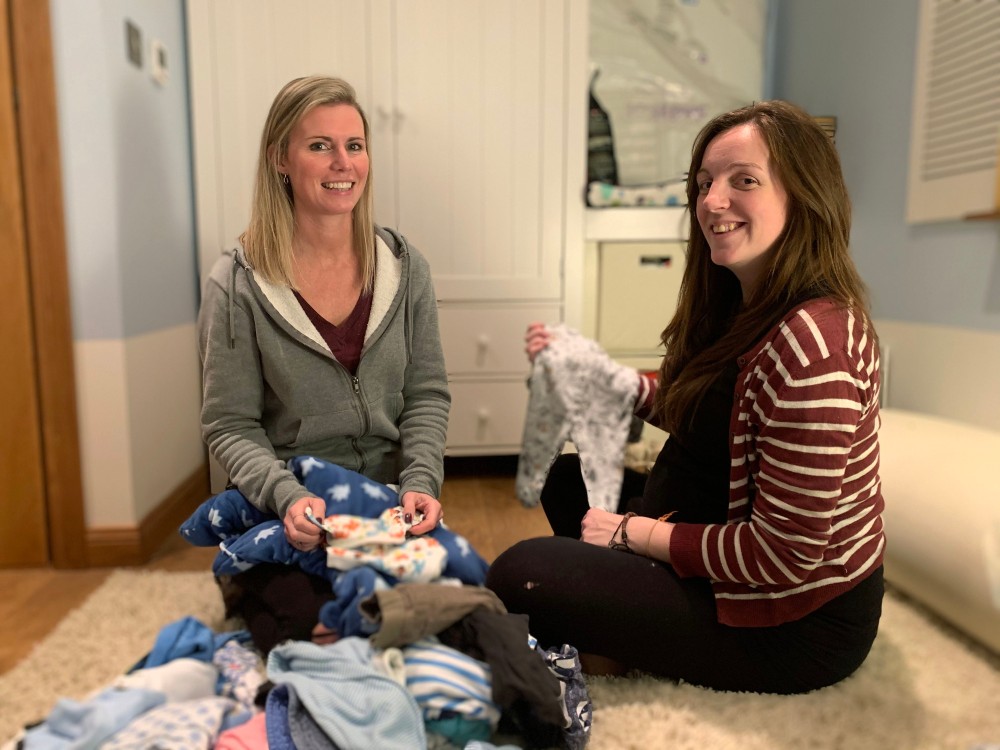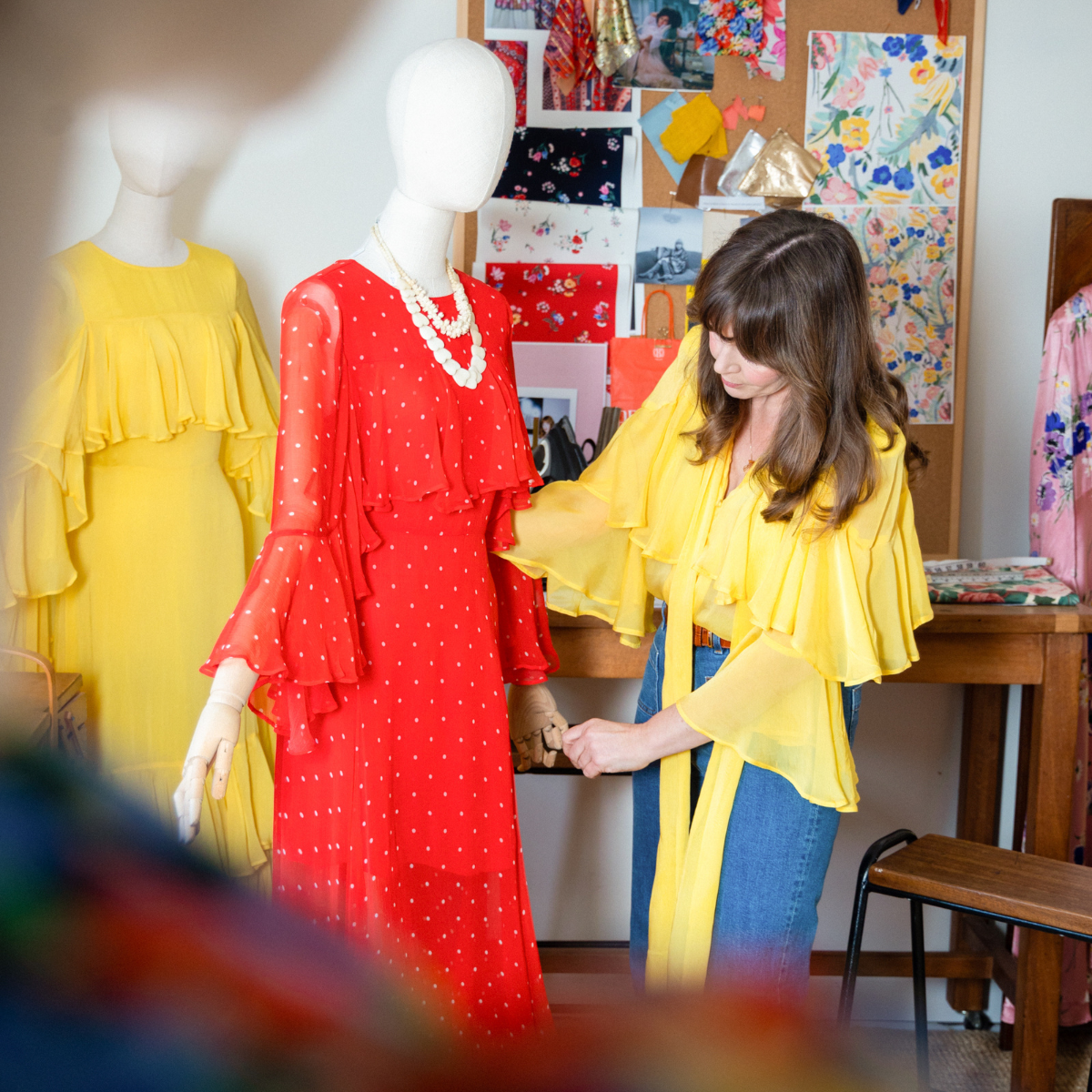We're hooked on BBC Three's The Surrogates - but it also highlights why the law needs changing fast
The Surrogates follows the ups and downs of women and wannabe parents as they try to have a baby. Surrogacy is becoming more popular for numerous reasons but if the law doesn't change soon a potential nightmare scenario lies ahead


The Surrogates follows the ups and downs of women and wannabe parents as they try to have a baby. Surrogacy is becoming more popular for numerous reasons but if the law doesn't change soon a potential nightmare scenario lies ahead
Are you hooked on The Surrogates? Just like Zara McDermott: Revenge Porn documentary, this is another must-see from BBC Three. Exploring the use of surrogacy in the UK, the series follows five women and would-be parents over 18 months as they try to have a child. And while we all know surrogacy - where a woman carries a baby for another couple, using either her own egg or a donor egg – is not a new way to start a family, it is certainly increasing in popularity.
For couples who’ve suffered repeated miscarriages, failed IVF treatments or early menopause, a woman offering to carry a baby for them can transform their lives, giving them a child they could never otherwise have had. For gay male couples, it’s a game changer. Hollie Orgee, a solicitor at Stowe Family Law, examines what you really need to know if for whatever reason you find yourself travelling down this path on your journey to creating a family.
And if you do, you can seek strength and comfort in knowing you're not alone. Since 2011, the number of parental orders (an application to the family court to be named as legal parents) made by parents of a baby born by surrogacy has tripled from 121 to 386 in 2018 (the latest figures available). Although it is widely believed some parents do not make this legal arrangement so the numbers of babies born to a surrogate may even be higher.

Chloe Campbell)
However, while actresses such as Sarah Jessica Parker and Nicole Kidman, supermodel Tyra Banks, Kim Kardashian West and singer Elton John are among A-listers who have used surrogates and have popularised the method, the legal complexities surrounding surrogacy can leave surrogates and the intended parents (those the surrogate has agreed to carry the child for) in a vulnerable position. A very vulnerable position if one side changes their mind.
Is surrogacy in the UK legal?
Surrogacy is legal, but it cannot be advertised or commercialised, meaning you are not allowed to pay someone to be your surrogate. In the US, commercial surrogacy is legal in many states, but it can cost vast sums. In Britain, by contrast, paying fees is illegal, however, intended parents are expected to cover reasonable expenses (such as travel costs, childcare and maternity wear) meaning surrogates usually receive between £9,000 and £15,000 to cover expenses.
What are the current laws on surrogacy?
At present, surrogacy can be an uncertain process for prospective parents and surrogates alike. Under the current law, when a baby is born, the woman who gives birth is the legal mother – whether or not she is biologically related to the child – and if she’s married or in a civil partnership, her spouse is the other legal parent. This means that the intended parents do not have any legal rights over the child when he/she is born.
Marie Claire Newsletter
Celebrity news, beauty, fashion advice, and fascinating features, delivered straight to your inbox!
To gain legal responsibility, they must apply for a parental order (once the surrogate mother has provided her formal consent six weeks after the baby is born). This can be a lengthy process through the family court, sometimes taking anything from six months to a year. This wait can potentially leave both parties in a vulnerable and complicated position as the intended parents care for the child from birth but have no legal rights or parental responsibility for the child.
Although rare, there are cases where one of the parties has changed their mind. Recently, there was a well-publicised case of parents based in Australia, who travelled to Thailand for surrogacy, but later were said to have abandoned their baby, who was born with Down Syndrome.
Equally, if the surrogate changes their mind and refuses to hand over the baby and provide consent to a parental order being made, the court has no power to make a parental order in favour of biological parents without the agreement of the surrogate and their spouse, regardless of the circumstances and what is best for the child.
What is a surrogacy agreement?
The intended parents and surrogate can record how they want the arrangement to work in a surrogacy agreement. This useful document can outline the approach and layout key decisions about expenses to health changes and through to birth. However, these agreements are not legally binding. They cannot be enforced by UK law meaning they are largely based on trust, leaving many intended parents and surrogates feeling worried about a future disagreement or issues further down the line.
Time for change
The current UK legal system does not offer enough protection and clarity for parents and surrogates. Whilst the law can vary by state, in the US, a legally-binding surrogacy agreement outlining respective legal positions, rights, roles and responsibilities both during and after the pregnancy is put in place before the process begins. Then follows a largely administrative court process in which intended parents are granted an order which recognises them as the legal parents from birth. This system gives parents and surrogates the clarity they need and removes any rights/obligations the surrogate has in relation to the child she is carrying.
The UK system could learn a great deal from this approach. There have been some strides for reform. In 2019, the law changed to allow single applicants to apply for a parental order, paving the way for single parents to undertake surrogacy. And the government undertook a consultation on surrogacy laws in the same year. However, the final report and recommendations for reform of the law and a draft bill are not expected until early 2022, and it remains to be seen whether the proposed reforms will go far enough.
The use of a surrogate can transform people’s lives - creating wonderful opportunities for people to have a family. With more people than ever relying on technology to help them start a family, it is clear the law needs to catch up, and quickly, with today’s modern families and fertility choices. Let's hope we will eventually see the changes in the law needed to offer more protection and clarity to both intended parents and surrogates.
* The Surrogates, BBC Three, is available on BBC iPlayer now
Maria Coole is a contributing editor on Marie Claire.
Hello Marie Claire readers – you have reached your daily destination. I really hope you’re enjoying our reads and I'm very interested to know what you shared, liked and didn’t like (gah, it happens) by emailing me at: maria.coole@freelance.ti-media.com
But if you fancy finding out who you’re venting to then let me tell you I’m the one on the team that remembers the Spice Girls the first time round. I confidently predicted they’d be a one-hit wonder in the pages of Bliss magazine where I was deputy editor through the second half of the 90s. Having soundly killed any career ambitions in music journalism I’ve managed to keep myself in glow-boosting moisturisers and theatre tickets with a centuries-spanning career in journalism.
Yes, predating t’internet, when 'I’ll fax you' was grunted down a phone with a cord attached to it; when Glastonbury was still accessible by casually going under or over a flimsy fence; when gatecrashing a Foo Fighters aftershow party was easy-peasy-lemon-squeezy and tapping Dave Grohl on the shoulder was... oh sorry I like to ramble.
Originally born and bred in that there Welsh seaside town kindly given a new lease of life by Gavin & Stacey, I started out as a junior writer for the Girl Guides and eventually earned enough Brownie points to move on and have a blast as deputy editor of Bliss, New Woman and editor of People newspaper magazine. I was on the launch team of Look in 2007 - where I stuck around as deputy editor and acting editor for almost ten years - shaping a magazine and website at the forefront of body positivity, mental wellbeing and empowering features. More recently, I’ve been Closer executive editor, assistant editor at the Financial Times’s How To Spend It (yes thanks, no probs with that life skill) and now I’m making my inner fangirl’s dream come true by working on this agenda-setting brand, the one that inspired me to become a journalist when Marie Claire launched back in 1988.
I’m a theatre addict, lover of Marvel franchises, most hard cheeses, all types of trees, half-price Itsu, cats, Dr Who, cherry tomatoes, Curly-Wurly, cats, blueberries, cats, boiled eggs, cats, maxi dresses, cats, Adidas shelltops, cats and their kittens. I’ve never knowingly operated any household white goods and once served Ripples as a main course. And finally, always remember what the late great Nora Ephron said, ‘Everything is copy.’
-
 A day in the life of Nicola Orme, the Queens of Archive founder behind the fashion set's favourite vintage-inspired dresses
A day in the life of Nicola Orme, the Queens of Archive founder behind the fashion set's favourite vintage-inspired dressesEverything she gets up to in her 9-5
By Sofia Piza
-
 Easy Escapes: The Ned offers a decadent retreat in the heart of London
Easy Escapes: The Ned offers a decadent retreat in the heart of LondonThe Ned eclipses other London hotels with its sleek spa, extensive dining options and party atmosphere
By Lauren Hughes
-
 Isamaya Ffrench on disrupting the beauty industry and her desert island make-up bag
Isamaya Ffrench on disrupting the beauty industry and her desert island make-up bagFashion's favourite make-up artist discusses her life in expression
By Nessa Humayun